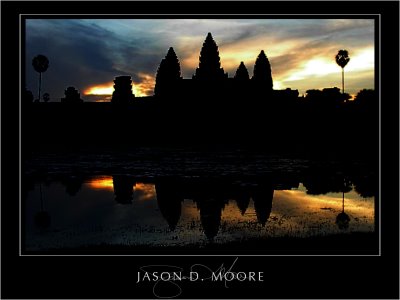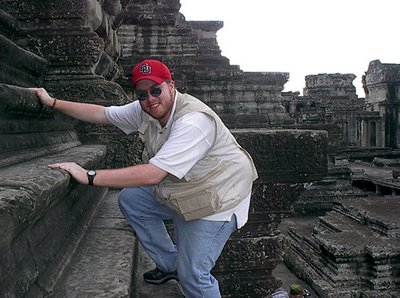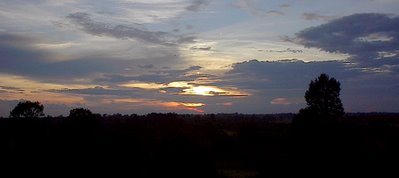Siem Reap
 On a different note, I just finished reading this article from CNN.com on the rise of tourism in Siem Reap, Cambodia. During my trip around the world when I studied abroad with Semester at Sea, I took a side trip during our time in Vietnam to visit the temples of Angkor Wat.
On a different note, I just finished reading this article from CNN.com on the rise of tourism in Siem Reap, Cambodia. During my trip around the world when I studied abroad with Semester at Sea, I took a side trip during our time in Vietnam to visit the temples of Angkor Wat.
 Aside from the shear beauty of the place and the utter amazement I felt visiting such a truly foreign and ancient icon of a once-great empire, it was one of the hardest experiences of my life.
Aside from the shear beauty of the place and the utter amazement I felt visiting such a truly foreign and ancient icon of a once-great empire, it was one of the hardest experiences of my life. We landed at the Siem Reap airport to go through customs and had to pass through armed guards - something I certainly wasn't used to - before heading to our fancy hotel (honestly, I've stayed in worse hotels here in the US). The difficult part came from the knowledge I had of the country and its history, not from any sort of culture shock.
Part of our program on SAS was a class called CORE, which everyone took, that focused on the many different aspects of the next country on our itinerary. We studied geography, politics, economics, religion, history, culture and current events. So I was somewhat aware of what had happened under the rule of the Khmer Rouge, adding a certain weight to the excursion.
The ports leading up to this point were fairly modern (Kobe, Japan; Shanghai, PRC; Hong Kong; Saigon, Vietnam). Where Saigon was a somewhat dirty, run-down, and chaotic city than our previous stops, it was still fairly modern. But Siem Reap proved itself to be rural and more typical of SE Asian towns.
While the temples were even more amazing than I had imagined (I first learned about them in an old issue of National Geographic) I wasn't prepared for the poverty that I faced. There were people with missing limbs because of the stray landmines left over from the war, children trying with great effort to sell trinkets and postcards and books - knowing that they couldn't go home if they didn't make even $10 dollars that day - and, even more heartbreaking, the 7-8 year olds carrying infant brothers and sisters in their arms, trying to negotiate with you (even through the windows of the bus) to take the little ones with you knowing that you could provide a better life than they would find there.
I had seen the homeless and people begging for money before when I lived in Boston or traveled to NYC with school trips but I wasn't ready for that. I'm ashamed of it but I got to the point where I just had to turn away and do my best to ignore what was going on around me. Even now, 4 years later it's hard to put into words. The best way I can put it is to say that it was one of the hardest experiences I've ever had, but it was an experience I needed to have in order to have a fuller picture of the reality of the world.
Back to the article...
While tourism to the temples of Angkor should prove to be a huge benefit to the Cambodian economy, there is the fear that too much traffic will cause more pollution, over-crowding, and even weaken or destroy the temples themselves. At the same time, the people who are bearing the brunt of the boom are also gaining employment.
I must admit that I was one of those that climbed the temple steps for a couple of good pictures, including this one at sunset as described towards the end of the article.
 To be honest, I'm not sure where I was headed with this. I guess I just struggle with the balance of the benefits of tourism for a country like Cambodia and its side-effects. Maybe this is just a stage on the road to Cambodia's overall development. Maybe this is a commercialization of a culture that will produce more poverty, inequality, and pollution than the perceived good. I really don't know. I just thought I'd throw it out there as something to think about.
To be honest, I'm not sure where I was headed with this. I guess I just struggle with the balance of the benefits of tourism for a country like Cambodia and its side-effects. Maybe this is just a stage on the road to Cambodia's overall development. Maybe this is a commercialization of a culture that will produce more poverty, inequality, and pollution than the perceived good. I really don't know. I just thought I'd throw it out there as something to think about.







